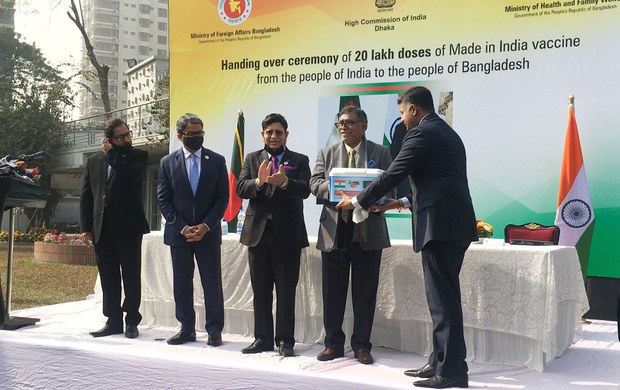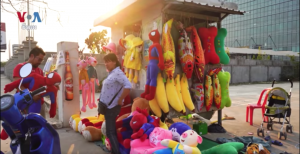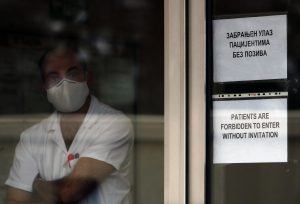USAGM networks explain vaccine diplomacy

As China and Russia are hoping to expand their international reputation and influence by donating COVID-19 vaccines, USAGM networks also helping audiences understand the nuances of “vaccine diplomacy,” and are reporting on the often-overlooked roles countries like Serbia and India.
For its Chinese audiences, Voice of America featured a lengthy examination of China’s efforts to cast itself as the solution to the pandemic while trying to undermine faith in American and Western efforts in the pursuit of is geopolitical and economic interests.
VOA also reported that vaccine diplomacy will be a crucial component of Chinese foreign policy in Africa for the foreseeable future as a way for China to “exert its soft power in Africa.”
But vaccine diplomacy requires more than just providing the inoculations; China must also persuade recipients that its vaccine is safe and effective. USAGM networks are shining a spotlight on those efforts. China’s donation of 200,000 doses of its Sinopharm vaccine to Zimbabwe was widely covered in the media, but VOA also detailed the Chinese ambassador’s efforts to allay doubts and fears about it, after a local public health expert said the vaccine was not effective against the South African variant of the virus.
In Asia, VOA Khmer Service likewise reported on Cambodians’ mixed feelings about Sinopharm, as China announced it is donating 1 million doses to the country. That included Prime Minister Hun Sen, who changed his mind at the last minute, deciding not to take it himself, noting that the Sinopharm vaccine was tested and approved for people between the ages of 18 and 59, and he is 68.

Radio Free Asia-affiliated BenarNews reported that China’s foreign minister recently wrapped up a Southeast Asian tour in the Philippines promising to donate half a million vaccine doses.
In Europe, delays in promised assistance from the European Union have provided an opening for Chinese vaccine diplomacy – via Serbia – to gain a foothold in the Balkans, Radio Free Europe/Radio Liberty reported. While Serbia is a Russian ally and has aspirations to join the EU, the country’s ties with China have expanded in recent years and as a result, the country is getting vaccines from both countries and is donating some.

RFE/RL’s Balkan Service reported that Serbia is eying production of the Sputnik V vaccine, as experts from Russia determine whether the country has the capacity to produce and distribute the vaccine. In a goodwill gesture, Serbia will donate 4,000 doses of Sputnik V to Montenegro from a shipment received from Russia earlier. Serbia also donated 4,680 doses of the Pfizer/BioNTech vaccine to neighboring North Macedonia.
RFE/RL’s Russian Service reported that at least one EU country, Hungary, is following Serbia’s example by procuring both Chinese and Russian vaccines. “For China, it’s a golden opportunity to embarrass the E.U. and the West more broadly,” Dimitar Bechev, a fellow at the Institute for Human Science in Vienna, told RFE/RL.
From Turkmenistan, RFE/RL reported that the country became the first in Central Asia to approve the use of Russia’s Sputnik V, even as the government continues to maintain that it is coronavirus-free.
From India, VOA reported on the country’s unexpected move to donate millions of the locally produced AstraZeneca vaccines to neighboring South Asian nations. “It’s about image and soft power. India wants to be recognized as a global leader,” Sreeram Chaulia, Dean at the Jindal School of International Affairs, said. Shipments of the vaccine have arrived in Burma, Bhutan, Nepal, Bangladesh, Maldives, Mauritius, and Seychelles, VOA reported.
RFA-affiliated BenarNews reported that Bangladesh received its first shipment of coronavirus vaccines – a gift from the Indian government – after Chinese state-owned Sinovac withdrew from trials in the country late last year following Dhaka’s refusal to co-fund its Phase 3 trials. “India is the first country to offer us vaccines,” Touhid Hossain, a former foreign secretary, told BenarNews. “This development would no doubt brighten India’s image in Bangladesh.” Hossain said.
